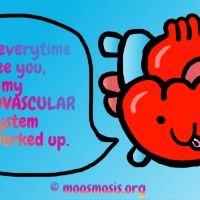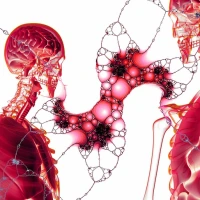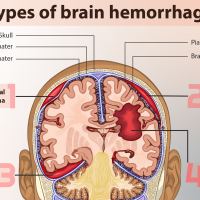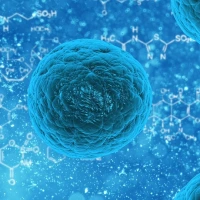Stress Responses of Fight-or-Flight on the Body Systems
The “fight or flight” response is in response to impending danger. For example, the stress responses kicks in when seeing a snake slithering towards you or running away from a bear in the woods. Homeostasis is the normal equilibrium of body function, so stress can be induced by belief that homeostasis might be interrupted. In this guide, we share the effects of stress on the human body system, psychology, immune system, and long-term health effects of chronic stress.

Biology and Psychology: Immediate Response of the Body to Stress
Voluntary Nervous System and the Autonomic Nervous System
- Voluntary nervous system
- sends messages to muscles so can respond to sensory info
- Autonomic nervous system
- made up of sympathetic and parasympathetic branches
- sympathetic branch causes arteries to deliver more blood to muscles; blood flow to skin, kidneys, and digestive tract is reduced
- stress hormone epinephrine (a.k.a adrenaline) is released
- parasympathetic branch helps regulate bodily functions and soothe body once stressor is over, which prevents body from remaining in state of mobilization for too long (if left, can cause disease to develop)
- reduce harmful effects of emergency branch’s response to stress
- sympathetic branch causes arteries to deliver more blood to muscles; blood flow to skin, kidneys, and digestive tract is reduced
- made up of sympathetic and parasympathetic branches
- Neuroendocrine system
- maintains internal functioning
- stress hormones travel through blood and stimulate release of other hormones

Role of Glucocorticoids in the Stress Response
- GLUCOCORTICOIDS are hormones secreted by the adrenal glands in response to signals from the hypothalamus
- produce many effects in response to stress, such as mobilizing energy into bloodstream from storage sites in the body
- some actions mediate stress response while others counteract primary response to stress and help re-establish homeostasis
- epinephrine mobilizes energy and delivers it to muscles for response while the glucocorticoid cortisol promotes energy replenishment and efficient cardiovascular function
- glucocorticoids affect food intake
- cortisol levels peak in early-morning hours before waking —> produces wake-up signal
- effect of glucocorticoids can help explain disorders like jet-lag which cause body to reset biological clock slowly (until reset, cortisol secretion and hunger, sleepiness, wakefulness occur at inappropriate times of day)
- cortisol and epinephrine facilitate movement of immune cells from bloodstream and storage organs
- glucocorticoids also help body respond to environmental change
Chronic Stress
- overexposure to glucocorticoids leads to weakened muscles
- elevated glucocorticoids and epinephrine contribute to hypertension (high blood pressure), atherosclerosis (hardening of arteries), and abdominal obesity
- epinephrine increases release and activity of chemicals which cause inflammation
- continual chemical activity can cause arthritis and accelerated aging
- overexposure to glucocorticoids increases number of neurons damaged by stroke
- prolonged glucocorticoid exposure before/immediately after birth causes decrease in normal # neurons and smaller brain size
- stress can cause sleep loss as elevated glucocorticoids delay onset of sleep, and sleep deprivation raises glucocorticoid levels

Different Body Systems Affected by the Stress Response
- immune system receives messages from nervous system and is sensitive to hormones like stress hormones
- sustained exposure to glucocorticoids suppresses immune system but also has benefits
- glucocorticoids rein in the “immune system boost” brought on by stress
- if no brake, increased chance of autoimmune disorders caused by overactive immune system
- glucocorticoids rein in the “immune system boost” brought on by stress
- sustained exposure to glucocorticoids suppresses immune system but also has benefits
Example of the Stress Response in Action: Biopsychology of a Heart Attack
- cardiovascular system receives messages from autonomic nervous system; stressful experieneces have immediate and direct effects on heart rate and blood pressure
- short term, these changes can aid in quick response to stressors but when stressors are chronic/psychological the effect can be harmful
- personality/behavioral type affect susceptibility to heart attack
- more irritable = more susceptible
10 Ways to Relieve Stress and Relax
- Take a walk
- Breathe deeply
- Sleep or take a nap
- Hug a loved one
- Visit a friend
- Play with a pet
- Journal
- Exercise
- Listen to Music
- Laugh 😀

Click and check out these articles for more information: 🙂
Circulatory System: Blood Flow Pathway Through the Heart
Circulatory System: Heart Structures and Functions
Ductus Arteriosus Vs Ductus Venosus Vs Foramen Ovale: Fetal Heart Circulation
Cardiac Arrhythmias: Definition, Types, Symptoms, and Prevention
Upper Vs Lower Respiratory System: Upper vs Lower Respiratory Tract Infections
Seven General Functions of the Respiratory System
Digestive System Anatomy: Diagram, Organs, Structures, and Functions
Kidney Embryology & Development: Easy Lesson
Psychology 101: Crowd Psychology and The Theory of Gustave Le Bon
Copyright © 2022 Moosmosis Organization: All Rights Reserved
All rights reserved. This essay first published on moosmosis.org or any portion thereof may not be reproduced or used in any manner whatsoever
without the express written permission of the publisher at moosmosis.org.

Please Like and Subscribe to our Email List at moosmosis.org, Facebook, Twitter, Youtube to support our open-access youth education initiatives! 🙂
Categories: Biology














97 replies »